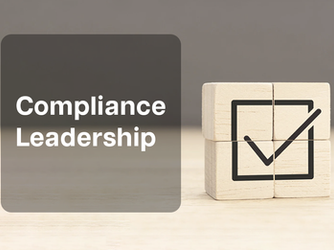

Compliance as a Leadership Priority and Cultural Norm
The TRACE team hosts webinars for our membership community throughout the year, and this time of year is always a favorite of mine.
During the first months of the year, the team works with experts in the field of compliance throughout the world to reflect on the past year's anti-corruption enforcement actions, while predicting what could happen in the year ahead.
Each region brings different areas of focus and different expectations of individuals working for an organ

Blaise Stanicic
4 days ago2 min read


Sports Boycotts: Power, Politics, and the Limits of Protest
In January 2026, former FIFA President Sepp Blatter joined growing calls for fans to boycott matches held in the United States during the 2026 FIFA World Cup. His support reflected broader concerns over U.S. political conduct, immigration policies, and the treatment of migrants and protesters, with critics questioning whether the United States was an appropriate host for a global event intended to unify nations.

BriberyMatters
Feb 174 min read


What the FCPA's History Means for the Future of the Fight Against Corruption
In a previous piece in conversation with Severin Wirz, ethics and compliance attorney (and former TRACE staffer) about his book Bribery Beyond Borders: The Story of the Foreign Corrupt Practices Act, I covered his telling of the pre-history of the FCPA. In this second of a two-part series, I explore how Wirz thinks the anti-corruption movement should now move forward, particularly following first the FCPA pause, and now the changes in FCPA enforcement.

Marc Schleifer
Feb 123 min read


Revisiting the Early History of the FCPA
When enforcement of the Foreign Corrupt Practices Act (FCPA) was paused in February 2025, ethics and compliance attorney Severin Wirz, previously with TRACE and now at Applied Materials, was finalizing a 10-year project on the law’s history. His resulting November 2025 book, Bribery Beyond Borders: The Story of the Foreign Corrupt Practices Act, truly meets this current moment. In this first of a two-part series from our recent conversation, I examine Wirz’s recounting of the

Marc Schleifer
Feb 102 min read


Best Practices for Supporting Ethical Business in the Logistics and Transportation Sector
Global compliance officers today are well aware that ESG risks have been a moving target over the last few years. Global human rights guidance has shifted from jurisdiction to jurisdiction, while regulations addressing environmental and social governance issues have become more difficult to track, depending on your industry sector or business operations.

BriberyMatters
Feb 53 min read


How Do Policy Reforms Impact the Flow of Funds From Corruption?
In December 2025, I wrote about my discussion with Daniel Haberly, an expert in illicit financial flows based at the University of Sussex Centre for the Study of Corruption (CSC), regarding how to map the networks that facilitate flows of corrupt funds around the world. In this second piece from our conversation, I drill down into his 2023 paper Corruption, Shell Companies, and Financial Secrecy: Providing an Evidence Base for Anti-Corruption Policy...

Marc Schleifer
Feb 33 min read
